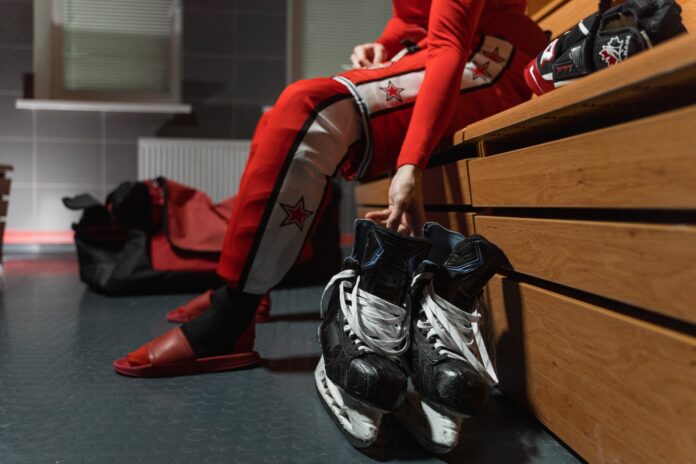Ice hockey is widely considered to be one of the world’s most demanding team sports, which means that rest and recuperation are of the utmost important for professional hockey players. But between traveling for away games, training multiple times a week, and dealing with the pressures associated with elite athletics, how well do these professional athletes actually sleep at night — and how does it affect their in-game performance?
To answer these questions, Université de Montréal PhD student Amélie Apinis-Deshaies carried out a survey of 50 American Hockey League (AHL) players. The results, which also included contributions from Bishop’s University, were published in the International Journal of Sports Physiology and Performance.
Previous studies have shed light on the mental health challenges that elite athletes face throughout their careers. With this in mind, Apinis-Deshaies’s study focused on both physical and mental factors that may impact the quality of players’ sleep.
The study made use of responses from a daily questionnaire completed by 50 AHL players aged 20 to 27 during the 2017-2019 season. Players were asked about the quality of their sleep, their overall sense of mental well-being, and reported specific details about their diet as well as their stress and pain levels.
Along with these self-reported details, the players wore motion sensors that tracked the effort they exerted during their practices and games. With this data, Apinis-Deshaies was able to determine how much time players spent on specific types of physical activity, including accelerating/decelerating on the ice, skating to maintain a particular speed, and gliding.
The researchers found that the 50 players included in the study slept an average of eight hours per night. However, both the quality and duration of their sleep decreased after away games or games that took place in the evening. High-intensity training loads also negatively impacted the duration of players’ sleep.
On the other hand, players who reported higher levels of mental well-being tended to sleep better at night. Interestingly, the outcome of a game — whether the players won or lost — didn’t tend to impact how they slept.
Apinis-Deshaies says that these results can be used by coaches and team managers to help their players stay physically and mentally healthy.
“The factor that has the greatest positive influence on the quality and duration of sleep is the player’s sense of well-being, regardless of the amount of training or amount of effort in a game,” Apinis-Deshaies explained in a news release.
“Coaches and team staff must all work to reduce negative effects, including non-hockey-related stressors, in order to improve players’ well-being so their nights can be both restful and restorative.”








































